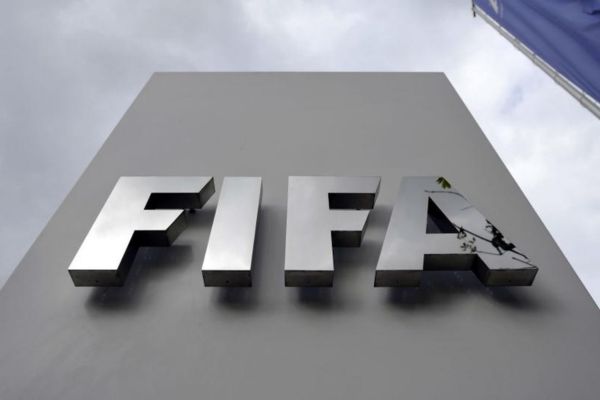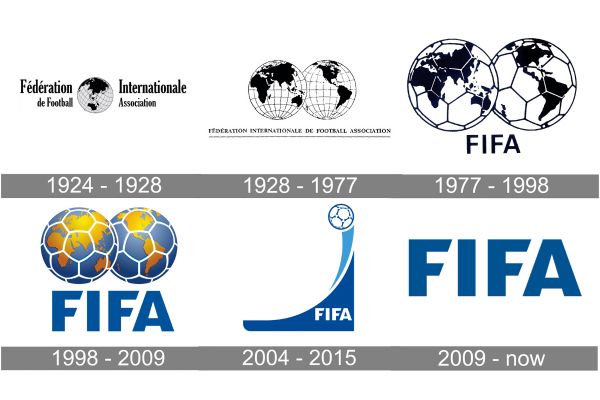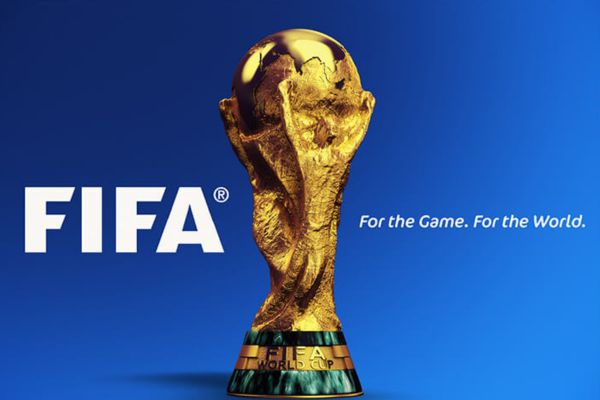What Does FIFA Stand For In Soccer?
1 year agoWhen watching international football on TV, you'll surely come across the name FIFA numerous times. So, what does FIFA stand for in soccer? What are its roles and responsibilities? And what major international football tournaments does it organize worldwide? Let's explore the detailed answers in this article!
Brought to you by ANZ Football live streaming.
What is FIFA?

FIFA is the abbreviation for the International Federation of Association Football, the governing body for the sports of football, futsal, and beach soccer at the global level. The name FIFA is derived from the French phrase "Fédération Internationale de Football Association." Its complete English name is the International Federation of Association Football.
Established in 1904, FIFA's initial purpose was to oversee international competitions between national teams from developed European countries. FIFA's headquarters are currently located in Zurich, Switzerland.
Presently, FIFA has expanded globally and boasts 211 member countries. These member countries must also be affiliated with one of the six continental football federations: Asia, Europe, North & Central America, and the Caribbean, Oceania, South America, and Africa.
History of FIFA

In 1902, Anton Wilhelm Hirschman, the Secretary-General of the Netherlands Football Association, met with his English counterpart to propose an official international football tournament and the establishment of an international football organization. However, this proposal was initially rejected by many members of the English Football Association.
Undeterred, Anton Wilhelm Hirschman continued to send letters to other football associations across Europe. Eventually, he garnered the support of several European football associations to create an international football organization.
On May 1, 1904, the first international friendly football match between France and Belgium took place and was recognized as the inaugural international match. On May 21, 1904, the official agreement to establish the international football association was adopted at the headquarters of the French Union of Athletic Sports Societies (hence why FIFA's name is derived from a French phrase).
Initially, FIFA only had seven member countries: France, Belgium, Netherlands, Denmark, Switzerland, Spain, and Sweden. Robert Guerin was elected as the organization's first president.
Football Tournaments Run by FIFA

As football developed in the early 20th century, FIFA started organizing numerous international tournaments. Among them, the most famous and globally appealing is the FIFA World Cup.
Here is a list of men's football tournaments of all levels organized by FIFA. Besides these international tournaments for men, FIFA also arranges several international competitions for women (although with slightly lower popularity):
- FIFA World Cup (senior men's football)
- Olympic Football Tournament for U23 teams (Olympic football)
- FIFA U-20 World Cup (U20 men's football)
- FIFA U-17 World Cup (U17 men's football)
- FIFA Women's World Cup (senior women's football)
- FIFA Futsal World Cup (indoor football)
- FIFA Beach Soccer World Cup (beach soccer)
Roles of FIFA
The most crucial role of FIFA is to facilitate communication and maintain connections between its members through representative offices located in various countries. These member offices collaborate and support FIFA's activities more efficiently and swiftly.
This, in turn, enables FIFA to organize international tournaments smoothly, promptly, and professionally. Thanks to FIFA, we have international football competitions at various levels, from amateur to professional.
Member offices in different countries are also responsible for disseminating and implementing regulations issued by FIFA. This helps standardize and unify football operations worldwide.
Responsibilities of FIFA
FIFA is responsible for overseeing and maintaining football standards. Its member associations are under the direct governance of FIFA.
FIFA is tasked with promoting the development of football and formulating rules and regulations for the sport. It also detects fraudulent or illegal activities and enforces appropriate measures and sanctions.
Simultaneously, all FIFA-affiliated entities must uphold and maintain the world's football foundation. All member associations are required to fulfill their roles as per the established regulations.
Conclusion
That's the answer to the question "What does FIFA stand for in soccer?". In conclusion, FIFA plays a pivotal role in governing and advancing football worldwide. Its efforts have led to the organization of prestigious international tournaments and the promotion of football as a unifying and beloved sport globally.
SEE ALSO: Top 10 Most Expensive Football Players In the World, Ranked
Other news

How To Watch All Premier League Games in UK Today
1 year ago
Top 10 Coolest Football Club Logos in the World
1 year ago
What is A Derby in Football? Meaning and Origins
1 year ago
Everything You Need to Know About New Premier League Rules for the 2023/24 Season
1 year ago
Where and How to Watch the 2023-24 Premier League in the UK
1 year ago
